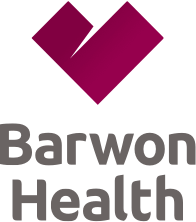What do I need to know before my child’s operation?
What is an anaesthetist?
An anaesthetist is a doctor who has special training to look after your child before, during and after surgery. They see patients before their operation to get them ready for their surgery.
The anaesthetist will talk to you about the best type of anaesthetic for your child and the surgery your child is having.
The anaesthetist will stay with your child and monitor them during their surgery and while they are in the recovery room. Anaesthetists are actively involved in managing any pain your child will have after an operation.
What should I tell my child’s anaesthetist?
Your child’s anaesthetist needs to know about your child’s health and medical history so they can plan their anaesthetic.
You should tell the anaesthetist about any:
1. Significant illnesses such as asthma, heart problems, liver disease, kidney disease, diabetes, epilepsy, cerebral palsy etc.
2. Problems your child or any other family member/s has/have had with an anaesthetic in the past.
3. Allergies to drugs, medicines or adhesive tapes.
4. Other information about your child you think might be important, such as loose teeth, cough/cold, growth or learning delays, feeding difficulties etc.
5. Medications your child is taking.
Types of anaesthetics
Different anaesthetics are suitable for different kinds of operations. The anaesthetist will talk with you about the best one for your child’s surgery.
General anaesthetic
General anaesthesia is a state of deep and controlled sleep induced by medications given by an anaesthetist. Your child’s anaesthetist may place a small drip into your child’s hand/arm and inject medicine that will put your child to sleep. The anaesthetist will be with your child during the operation, monitoring their condition closely while they are asleep and as they wake. Your child should not feel pain during the surgery.
Nerve block
The anaesthetist will inject local anaesthetic into the nerves that supply an arm or leg to make them completely numb. Your child will be asleep when this happens.
For some operations that require a general anaesthetic, a nerve block or local anaesthetic may be also given to reduce the amount of pain felt after the operation.
Local anaesthetic
This anaesthetic will numb just the area that needs minor surgery. The anaesthetic is injected into the skin.
Intravenous sedation
Intravenous means that the medicine will go directly into your child’s veins through a drip. The sedation will make your child sleep. This method is used for minor procedures and can sometimes help your child before their operation.
Epidural and spinal anaesthesia
This type of anaesthetic is rarely used in children and only for specific surgical procedures. The anaesthetist will inject the medication to block feeling to a particular part of the body. It is still possible to feel touch and pressure but not pain.
What do I need to do before my child’s operation?
- Please fill out your child’s health questionnaire with your most up to date information. From this information we will be able to see if your child need an appointment with the nursing staff in the Preadmission Clinic, before their operation.
- Please follow any special instructions for your child for surgery, especially with regard to eating and drinking before surgery.
Your child can have their normal medication/s before their operation, unless you are given special instructions by the preadmission nursing staff, anaesthetist or their surgical doctor. - If your child develops a cold, or any other infection, in the week before their operation, please let the preadmission nurse know by calling 4215 1627.
Day Surgery
If your child is going home on the same day as their operation, please make sure that there is someone to stay with your child for 24 hours.
What risks are involved?
There are risks involved with all anaesthetics and surgery. Your child’s anaesthetist will answer any questions you may have, before the operation.
Can I go to the operating theatre with my child?
If you choose, you can go with your child while they are ‘checked in’ before their operation. You may be able to stay with your child until they are asleep, but will then need to leave the operating theatre. You will be allowed to be with your child in the recovery room once they have woken after their operation.
Questions
Please feel free to ask your child’s anaesthetist any questions about the anaesthetic.
Contact
For more information about anaesthetics, please phone the Preadmissions clinic on 4215 1627.
